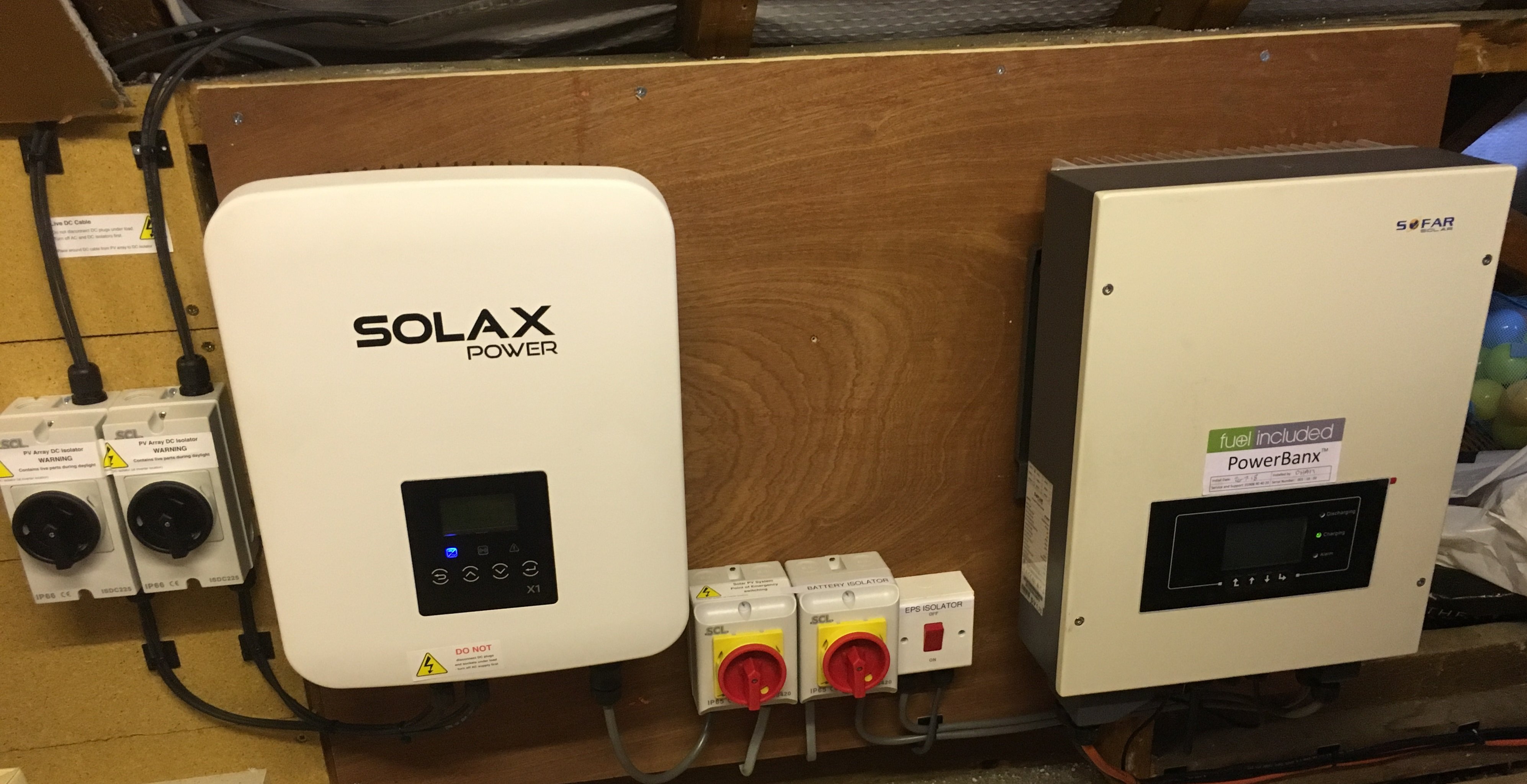One vs Two Inverters
There are two main approaches to Inverters when installing a solar and battery system in the home, and there are pros and cons to each. This blog highlights the main advantages and disadvantages of each.

Typical separate Inverter system installed in a roof space
In this blog we are looking at two arrangements of inverter:
- Separate Inverter. This covers two cases: First is a typical solar Inverter which converts the DC electricity from the solar panels into AC electricity that can drive your household mains or export to the grid. The second is a typical battery Inverter which takes AC electricity from the home and converts it to DC electricity to store in the battery. This is also reversible – it can take the DC electricity from the battery and convert it to AC electricity for the home.
- Hybrid Inverter. This combines both the capabilities of the separate Inverters in one unit.
A hybrid Inverter
At first glance this seems like a no-brainer. A single box is better than two yes? Well maybe.
The main advantages are:
- One Inverter takes less space than two which can be important for some.
- It is slightly cheaper than two separate Inverters, although there is very little in it as the hybrids are more complex.
However the disadvantages are:
- A single point of failure. If the Inverter fails, both your solar and battery systems will stop working until it is fixed.
- Lower power. Typically a hybrid Inverter will not allow the same power as two separate ones.
- Portability. If you move house, solar is hard to move. However, batteries are pretty simple to move. So, if you move the batteries, then you leave a mismatched Inverter behind, and need a new Inverter for the batteries in your new home.
A separate Inverter for each system
For the separate Inverters, the above is pretty much reversed.
The two systems are wholly independent physically, although they work together to control your home energy. This means that you get each system optimised for what it does best.
Any failure is localised to one of the systems, and so the remaining one keeps giving you the benefits you originally wanted while the other system is repaired.
Conclusion
In our view the benefits of separate Inverters outweigh those for the hybrid Inverter. Separate Inverters allow flexibility, resistance to failure and higher power.
However, the main case for hybrids is if space is an issue.
If you book a survey with us, we shall always discuss the practical space implications with you.